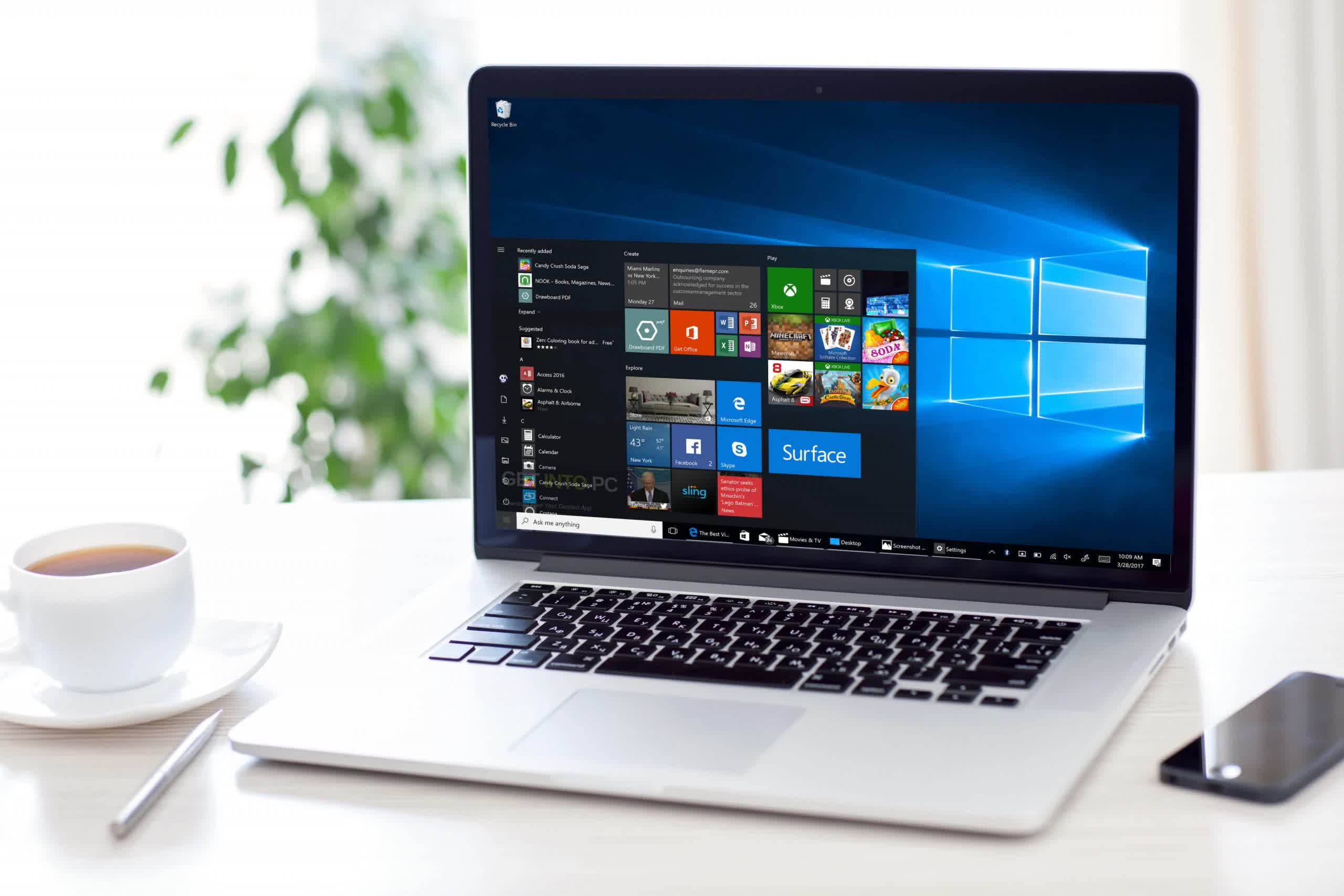In context: If you need to run Windows on that shiny new Mac M1, there is no easy way to do it anymore. The standard x86 version of Windows is not compatible with the Arm architecture, and the Arm-based Windows 10 that Microsoft installs on the Surface Pro X is not available commercially. However, if Microsoft ever does release it to the public, it will reportedly run better than it does on the Surface Pro X.

When Microsoft introduced its new Surface Pro X, it also launched a fork of Windows 10 exclusively for use on the tablet's Arm-based processor. Windows 10 on Arm is only available pre-installed on Surface devices or from OEM partners like HP, Asus, and Lenovo. But how would the Arm version of Windows run on Apple's new M1 silicon?
As it turns out, it runs very well. Amazon Web Services principal engineer Alexander Graf recently tested Windows 10 on an M1 processor using QEMU virtualization and found that it runs "pretty snappy."
Who said Windows wouldn't run well on #AppleSilicon? It's pretty snappy here 😁. #QEMU patches for reference: https://t.co/qLQpZgBIqI pic.twitter.com/G1Usx4TcvL
— Alexander Graf (@_AlexGraf) November 26, 2020
It's native ARM 😉. Running the Windows ARM64 Insider Preview virtualized through Hypervisor.framework. No emulation involved.
— Alexander Graf (@_AlexGraf) November 26, 2020
Indeed, another curious developer tweeted Geekbench 4 and 5 scores comparing Windows 10 on an M1 computer compared with a Surface Pro X. Apple silicon scored 1,288 in single-core tests and 5,685 in multi-core on GB5. Microsoft's own tablet only turned in 799 and 3,089, respectively.
"Who said Windows wouldn't run well on Apple silicon," Graf tweeted.
Some GeekBench* scores, not yet tuned (like topology and whatever) about Windows on M1:
— Sunshine Biscuit at scale 🍪 (@imbushuo) November 28, 2020
GB5 https://t.co/ifUGPnpTDI
GB4 aa64 https://t.co/jpCfcNlRRc
GB4 XtaJIT (x86) https://t.co/nfUImwJmz8
*: I don’t like GB for technical reasons, but the score is provided for curiosity
Graf was obviously being facetious since Apple's software chief Craig Federighi confirmed last month that the M1 SoC could run Windows 10 on Arm. "That's really up to Microsoft. We have the core technologies for them to do that, to run their Arm version of Windows, which in turn, of course, supports x86 user mode applications," the Apple boss told Ars Technica when asked about the possibility. "But the Macs are certainly very capable of it."
As Federighi points out, the real question is not whether you can run Windows 10 on Mac silicon, but rather, will Microsoft ever allow it?
In the past, users who needed to use Windows on their Intel-based Macs could simply install it alongside macOS via Apple's Boot Camp virtualization software. However, Microsoft does not issue individual licenses for Windows 10 on Arm at this time and has not indicated that it would in the future.
Image credit: DenPhotos
https://www.techspot.com/news/87801-windows-10-arm-runs-better-m1-mac-than.html

